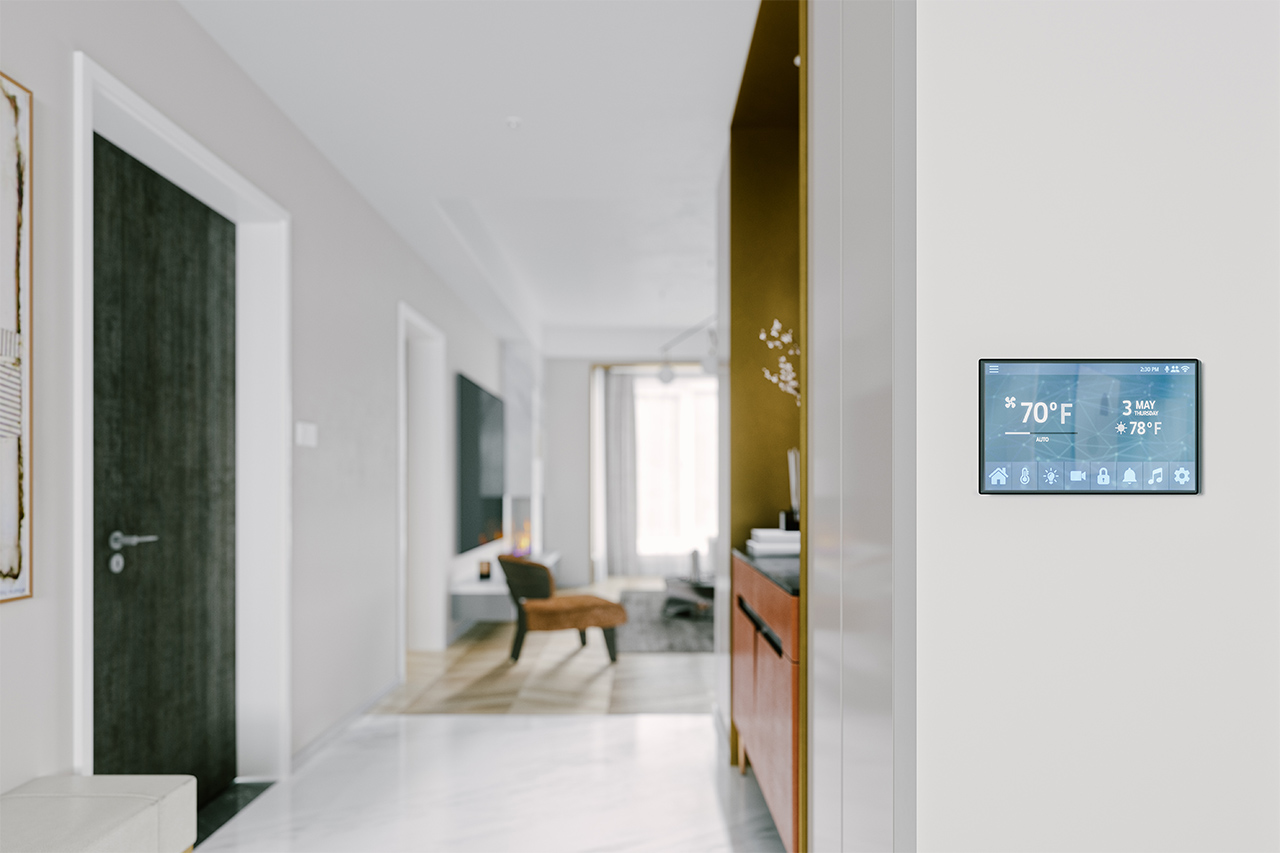
Discover the average smart home system cost, including key price factors and tips to save on installation, devices, and ongoing expenses.
Smart home technology is more clever than ever


Smart home technology shows no signs of slowing down.
Smart homes can improve security and conveniences like cleaning.
Some smart devices can also lower your energy bills.
New smart home tech may even improve your health by helping you stay hydrated.
From house cleaning to home security—there are plenty of benefits a smart home can offer. But is the convenience of smart homes worth the costs that come along with it? While the choice ultimately comes down to your particular needs and budget, there are plenty of compelling reasons why it’s worth it to have a smart home in 2022.
There are plenty of smart home security automations you can set up to keep those inside the home safe from those outside the home, but also from potential threats inside as well. This can be simple smart automation such as sending you an alert that someone is at the front door with a package and you can communicate straight through the doorbell. Or it may be as complex as alerting you to smoke or CO2 levels and opening up your garage for extra ventilation.
If you’re too far from the house and you forgot about the oven, garage door, or the front door lock, a simple alert can make all the difference. But rather than having to rush back home to fix the problem, you can simply push a button on your phone and your smart home will take care of the rest for you through home device automation.

Running a household can often feel like a full-time job. Smart homes can help decrease your housework efforts through the use of smart home technology and its ever-evolving trends.
These smart home technologies may be in the form of sweeping and mopping robots or through automated washers and dryers. You can even outsource your pet cleanup duty to a self-cleaning litter box..
With that being said, smart devices don’t always act… well, smart. There may be times when your mop or vacuum misses a spot and you need to get out a mop.
While turning off your lights through a home hub or from the push of a button on your phone is convenient, it may also save you money in the long run. Being able to set routines for lights or turning them off at work when you accidentally left the bathroom light on is a great way to decrease energy usage. The same can be said for smart plugs and any device or appliance you plug them into.
Smart thermostats may also learn how to optimize your home’s heating and cooling to keep it at the ideal temperature without using excess energy. Smart blinds may work hand-in-hand with your smart thermostat to close the blinds if it detects the home rising in temperature. And smart water controllers may allow you to detect leaks hidden in the pipes throughout the home.
Realistically though, you need to maximize the abilities of these smart devices to fully reap the benefits of your energy savings. Failing to set routines and never checking to see if the lights or plugs are on or off may end up with you spending more money with no real benefit.
Whether it’s monitoring your physical health or helping improve your social health, smart home technology is also aiming for you to make adjustments to improve your lifestyle. This may be setting up a home hub with a screen to enjoy a much-needed video call with friends and family. Or it may be a hub acting as a way for someone to call emergency services in the event someone falls, or a phone breaks.
You can even get specific and have smart water filters measure how much water you’ve poured each day, which may help you increase your fluid intake. Before we know it, we may even have smart food scales that tell us the macronutrients within our food without us having to measure it out.
One problem with these types of services is that they often come with a subscription service. Many people enjoy only having to buy the product once and then set it and forget it.
The biggest issue holding back smart home adoption worldwide is the compatibility issues between different brands. Where one product may work with one smart home hub, it may not work with the other, effectively eliminating someone's ability to use the smart home tech at all. Before buying smart home tech, it’s best you call a local home automation company to ensure these items will work together.
Though, there does seem to be a fix in the works through an alliance called the Connectivity Standards Alliance. Their goal is to have smart home companies such as Google, Amazon, and Apple have their devices meet a standard called Matter. Matter promises to connect the brands who agree to it and work with each other, regardless if you bought a Google product for one room and an Apple product for the other.
Yes, smart homes in 2022 are worth the money due to increased user-friendliness and cost-effectiveness. The 2020s saw some of the largest improvements in smart home technology trends, and they became more available to a wide range of populations. Now, 2022 seems to be the best year so far for those looking to break into the smart home world.